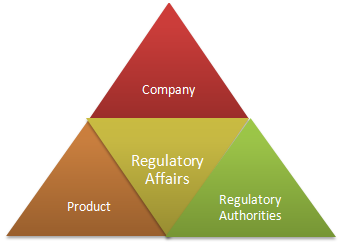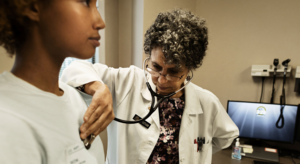I recently attended the RAPS (Regulatory Affairs Professionals Society) conference in Austin, Texas. This was a fascinating eye-opener to the sector involved in the regulation of healthcare and related products, including pharmaceuticals, medical devices and nutritional supplements. As practicing physicians, we are familiar with all of these entities; we prescribe medications, have patients with pacemakers and artificial hips, and we might recommend vitamins or Omega-3 fish oil. However, we may not know much about the career opportunities in regulatory affairs or the individuals doing this important work.
At the RAPS conference, I had the chance to meet some of these folks. I don’t know if it’s because regulatory affairs tends to attract people who like to follow rules, care about quality, and have a high degree integrity, but this was a really great group of professionals. No one butted in line when the “Hey Cupcake” trailer opened during a break. Recruiters and attendees I spoke with were more than willing to share information and advice. And the conference as a whole was incredibly well-organized and thoughtfully presented. There were 5 different special interest tracts one could pick and choose from, conveniently color coded for easy reference. The tracts were:
- Biologics and Biotechnology
- Health-Related Foods
- Pharmaceuticals
- Medical Devices and In Vitro Diagnostics
- Regulatory Business
One of the seminars I attended was on Pediatric Medical Devices. In this presentation, pediatrician Linda Ulrich, MD, FAAP, director in the Office of Orphan Products Development at the FDA, eloquently captured the connection of regulatory affairs to the chain of device development when she said, “A clinician needs an engineer, who needs a business person, who needs someone who thinks like a regulator.” She and the other speakers stressed the need for the development of devices specific for children, instead of having to resort to jury-rigged devices designed for adults.
There were some great career workshops where RAPS fellows (members who are seasoned veterans in regulatory affairs) shared their career stories and offered sage advice to aspiring attendees. Some pearls from these sessions were:
- Interviewers want to know you’re passionate about working for their company, not that you are just looking for A JOB.
- Soft skills, such as good communication and interpersonal skills, and a collaborative personality are key. Be able to give examples of your soft skills.
- Regulatory affairs is rarely a first career. Networking and experience are necessary to enter this area.
- Physicians may find entry into regulatory affairs through working for the FDA. Look for fellowships offered by the FDA. Gain experience by participating in clinical trials.
- Physicians can also be involved in regulatory affairs as medical writers.
In a panel presentation on Dietary Supplements and OTC medicines, Steve Mister from the Council for Responsible Nutrition, told a cautionary tale about a company that was putting Viagra and Cialis in products without disclosing their presence. The responsible party ended up with a 3 year prison term. In another case, the Feds seized $2 million in DMAA (1,3 Dimethylamylamine) at Hi-Tech Pharma, after it discovered this stimulant was associated with cardiovascular problems. He also mentioned a website, www.keepsupplementsclean.org which provides information to consumers and industry on tainted products, recalls, and warnings. Supplements pertaining to weight loss, muscle
which provides information to consumers and industry on tainted products, recalls, and warnings. Supplements pertaining to weight loss, muscle enlargement and sexual enhancement have been more likely to be laced with prescription drugs and anabolic steroids. Products claiming to be helpful for diabetes, cholesterol and pain control are becoming targets for tainting.
I wish I could have attended many more of the presentations and seminars. There were speakers from around the globe talking on a wide array of issues pertaining to developments in regulatory affairs. If you are curious about the scope of this conference, you will find a list of the sessions here.
In addition to this annual conference, RAPS offers various other resources for regulatory professionals. They have a prestigious RAC designation (Regulatory Affairs Certification) for those with a minimum of 1- 3 years of experience, which involves sitting for an examination. There is also an on-line certificate program for those wanting to increase their knowledge base. One can obtain a Regulatory Affairs Certificate in Medical Devices or Pharmaceuticals, or both. Each of these tracts has 4 required courses:
- Ethics
- Global Regulatory Strategy for the Medical Devices or Pharmaceuticals
- Medical Devices or Pharmaceuticals: Definitions and Lifecycle
- Role of the Regulatory Professional
You choose 5 electives from a selection of 29 courses, which include offering such as, Pharmacovigilence (drug safety), FDA law and regulations, Medical Writing, Pharmaceuticals: Advertising and Promotion in the US, Understanding and Managing the US Clinical Trial Process, and Regulation of Dietary Supplements.
For more information about regulatory affairs, please visit the RAPS website. If you become a member, you can participate in local chapter meetings, receive discounts on courses, books and conferences, and have access to the career center and job bank. The RAPS annual conference this year will be in Baltimore, Maryland, October 24 -28th, 2015.
Latest Posts
Find what you're looking for:
Popular Categories:
Career Change | Career Enhancement | Job Search | Personal Development























